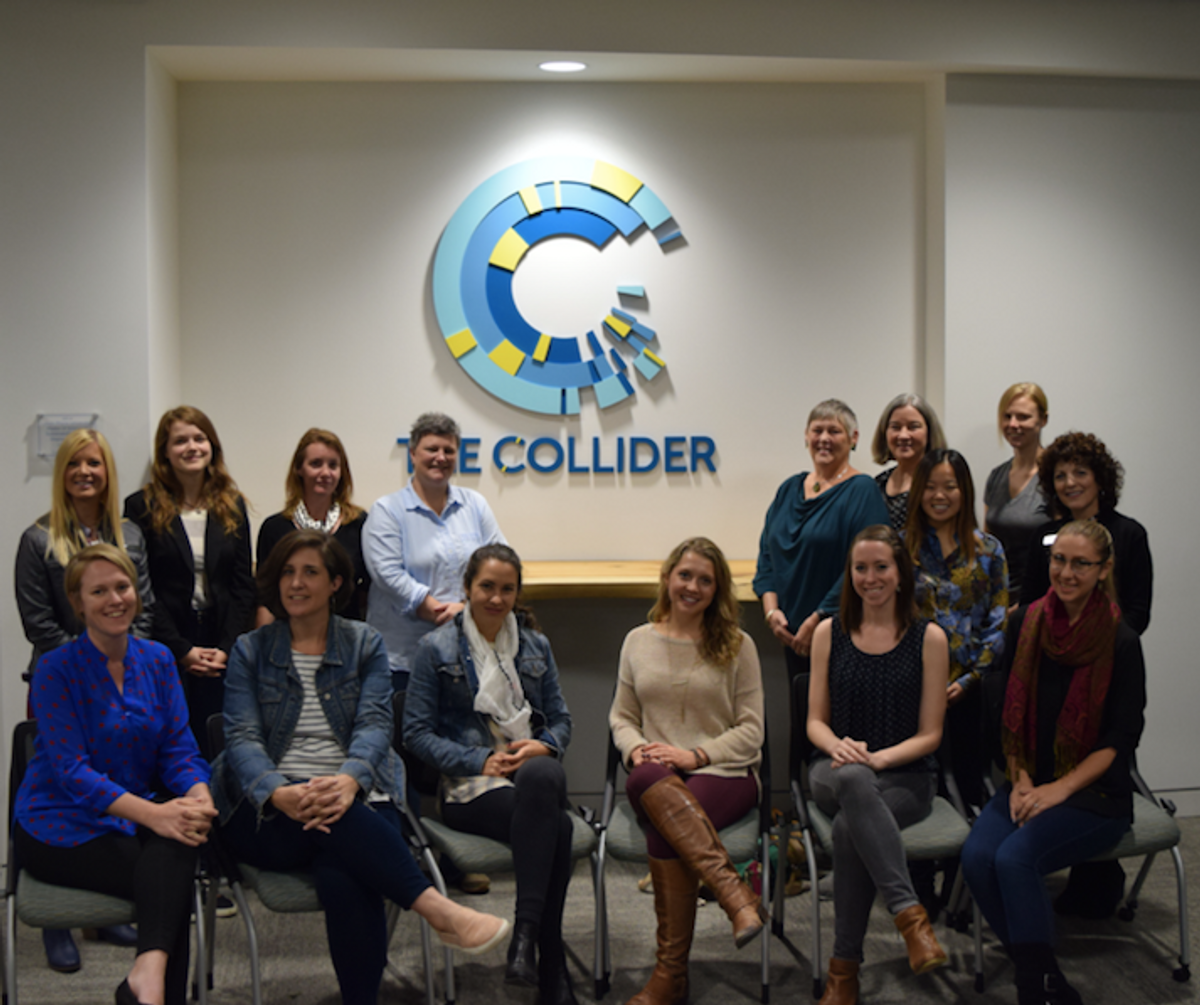 “We’ve come a long way, baby,” Marjorie McGuirk, the president of CASE Consultants International, tells me. It’s a Friday morning in Asheville, North Carolina, and McGuirk is mingling among other professionals at The Collider’s monthly coffee hour.
“We’ve come a long way, baby,” Marjorie McGuirk, the president of CASE Consultants International, tells me. It’s a Friday morning in Asheville, North Carolina, and McGuirk is mingling among other professionals at The Collider’s monthly coffee hour.
The Collider, a non-profit organization founded in March of 2016, is one of the first of its kind. A self-proclaimed innovation center that offers co-working, event space, monthly mixers and networking opportunities, all for companies focused on creating climate change solutions, it's located in the heart of Climate City. Its tagline, “Where business and science collide,” might sum it up best.
For business owners like McGuirk, The Collider provides opportunities not only for business ventures, but for a dialogue to be had. “There’s no denying climate change is real. That conversation is over, and now we must direct it towards creating solutions.”
While the discussion surrounding climate change has come a long way, McGuirk’s earlier remarks refer to another issue that has plagued the field of science and business for far too long — the lack of women at the table.
Eileen Shea, the current Pacific Islands Regional Coordinator for the National Oceanic and Atmospheric Administration, recounts her early career days of being the only woman in the room. "Back before cellphones were a thing, if someone would call the front desk of an office and ask to speak with me, the receptionist would ask how to identify me. The person calling would always say, 'Eileen's the only woman in the room or the meeting, you can't miss her.'" Shea's extensive education and career in weather and climate related science make her an anomaly amongst her peers, but one could argue the city that houses The Collider and women like Shea and McGuirk is also an exception to the rule.
The youngest staff member, 17-year-old Molly Pruett, found The Collider through a summer space camp. When she heard about an opening for an events assistant, she submitted her application the same day. She recounts, "Asheville is certainly an outlier, especially in regard to gender roles. There's been a lack of female representation in science for a long time, but I'm seeing the shift and I'm excited to be a part of it." Pruett attends the Nesbitt Discover Academy, a highly selective and application for entry public STEM high school in Buncombe County that gives students college credit for coursework as early as their freshmen year. Pruett's inspired by the all-female in-house staff at The Collider and the women who have paved the way, but she notes, "When using your voice, regardless of what you are speaking for, you should do so eloquently and do it well. I think that applies to everything in life, but it's definitely something I'm taking with me in my career."
The Collider's executive director, Megan Robinson, notes that women are not only a necessity to providing climate change solutions in the field of science, but in every field. "Providing basic education for women and girls everywhere can be the way we change the trajectory of climate change and climate science." A recent study by Project Drawdown cited that educating women is "one of the most powerful levers available for avoiding emissions by curbing population growth. Women with more years of education have fewer and healthier children, and actively manage their reproductive health." Robinson adds, "It's encouraging to see women in all fields of climate science emerging into leadership roles and it's changing the course for what is to come."
Shea wraps up the coffee hour by finishing her story about the days as the only woman in the room. She finishes with, "We're not alone anymore, but that doesn't mean we have to stop taking care of one another. We're an asset to our communities and that in and of itself is empowering. Science is simply the common denominator. "



Shares